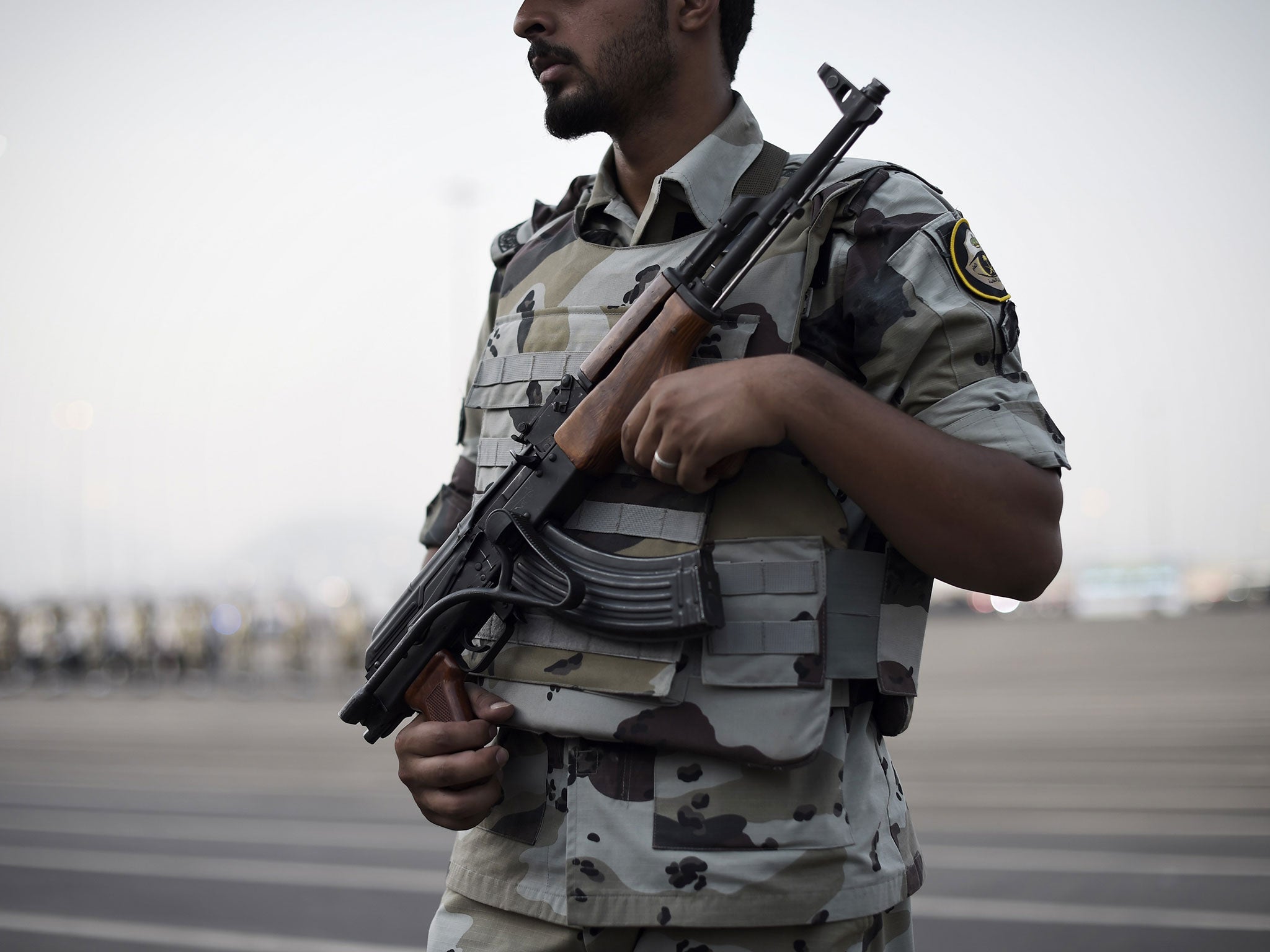Saudi religious police return to streets of Riyadh
Kingdom caught between desire to modernise and need to pacify ultra-conservative Islamic influences dominant in its society

Outside a supermarket in Riyadh, a long-bearded police officer peers at a driver, glances at his female passenger and issues an order: “You should stay away from women.”
The trouble for the young man is that women are banned from driving in Saudi Arabia. He works for a ride-sharing company and the vast majority of his customers are female. “What am I supposed to do?” he protested before shrugging and taking off. “Leave them?”
The exchange highlights the paradox that the Saudi religious police have come to embody since Crown Prince Mohammed bin Salman, elevated this week to the heir to the throne, unveiled a transformation plan called “Vision 2030” just over a year ago.
That blueprint for life after oil means the country is attempting to modernise the economy and create jobs to bring down youth unemployment by replacing foreigners with Saudis, including drivers for Uber and local competitor Careem. What’s harder is to reconcile the inevitable social change with an ultra-conservative strain of Islam like nowhere else on earth.
The foot-soldiers in short, white robes and unadorned headdresses seemed to have all but vanished from Riyadh last year after the government barred them from making arrests or questioning people. But recently, as some Saudis complain of creeping immorality, they’re back in many areas of the capital, rebuking men and women for mixing in public and clamping down on uncovered hair, albeit a little more politely.
It’s because they often serve as a counterweight when Saudi Arabia moves toward more social lenience, said Crispin Hawes, managing director at Teneo Intelligence. Their return is a kind of natural “pendulum swing,” he said. “The system is navigating itself through slightly uncharted waters.”
After Mohammed bin Salman's anointment on Wednesday, Saudis used Twitter to list their hopes for the “new age.” The return of the religious police was among the demands, along with jobs, affordable housing, women's rights, ejecting foreigners and “holding the liberals accountable.”
The officers have retreated and come back before. For instance, in 2002, the Interior Ministry told them to go easy on enforcing strict moral codes on youth. That came as Saudi Arabia sought to project a less extreme image following the 11 September attacks on the US the year before and after a fatal school fire in which eyewitnesses said the religious police stopped girls from fleeing because they weren’t properly covered.
The police, formally the Commission for the Promotion of Virtue and the Prevention of Vice and just known locally as the “hay’ah,” didn’t respond to a request for comment. It said in a statement last month it was starting a project “to develop and strengthen fieldwork.” That will mean more presence from officers during “occasions that require it,” such as school holidays, the statement said.
Charged with enforcing rules like gender segregation and business closures for prayer, the commission is an embarrassment to some Saudis and a beloved symbol of the country’s Islamic identity to others.“The majority of the people are calling for the return of the religious police,” said Mohammed Al Subaie, 27, a Saudi who advocates reinstating their powers. “There’s a void now and it’s led to rebellious behaviours.” He complained about “women displaying their beauty.”
Waiting on a bench in an upscale mall, Haya Al Otaibi, 50, was certainly not one of those women. Draped in black with only her eyes showing, she said she missed the religious police and also believed they’re necessary to protect youth morality.
It’s still a far cry from years ago. Officers will now be given iPads to file reports, rather than the sticks they once carried to whack violators, Saudi newspapers have reported. Legally, they can’t do much more than rebuke people, and when they cruise the streets droning “prayer, prayer” into megaphones, many Saudis simply ignore them.
Unable to enforce their edicts without the assistance of regular police, the commission has been trying to cultivate a warmer, fuzzier image. On official social media accounts, they share photographs of officers handing out candy to children alongside posts about busting illegal alcohol stills.
An officer who stopped a Bloomberg reporter for wearing a colourful abaya, the robe that women must wear in public, was courteous. “The abaya should not attract the attention of men,” he said, calling out “God bless you” as she walked away.
Sitting with her children in a Riyadh mall food court, Umm Ziyad, a 40-year-old mother, said the power curbs were necessary to avoid abuse. “If they overstep their boundaries I’m not with them,” she said. “Sometimes they really went too far.”
Bloomberg
Join our commenting forum
Join thought-provoking conversations, follow other Independent readers and see their replies
Comments
Bookmark popover
Removed from bookmarks